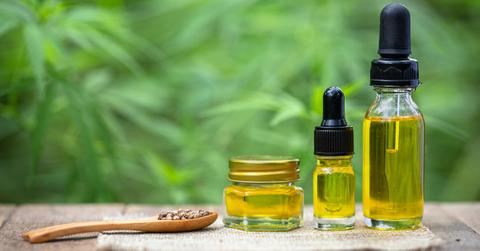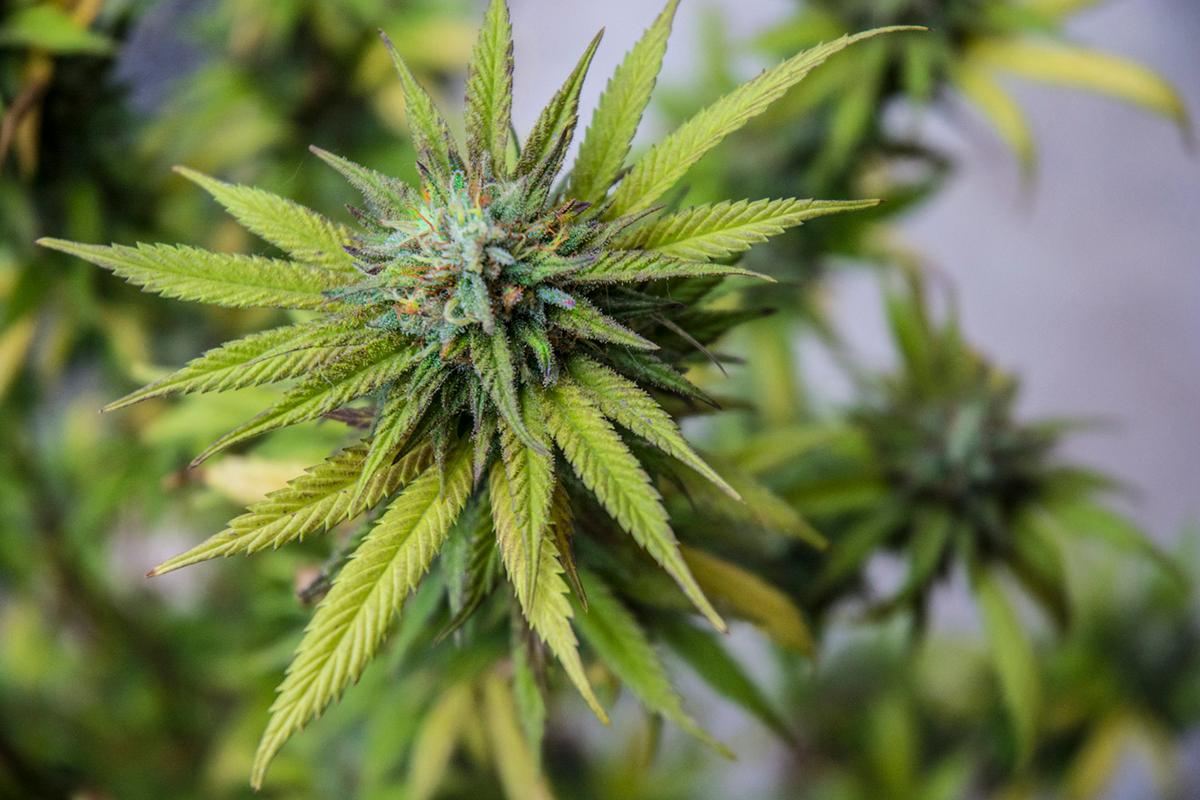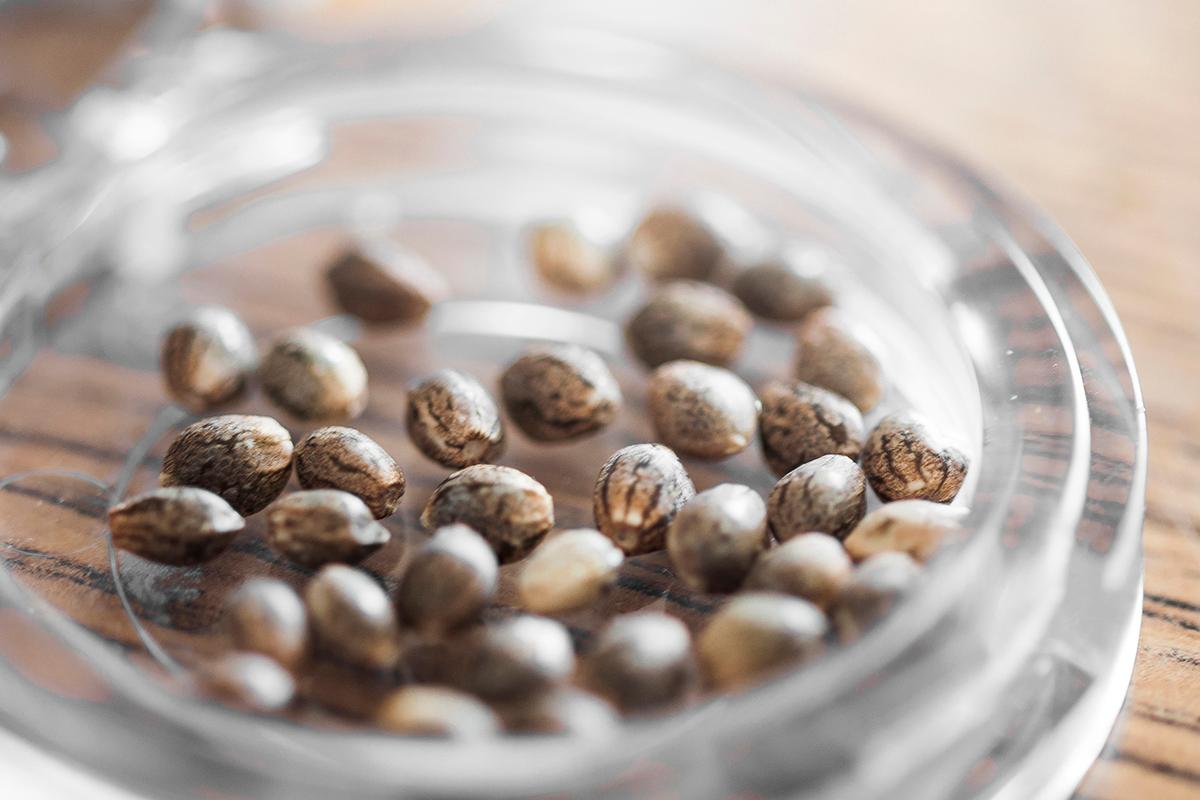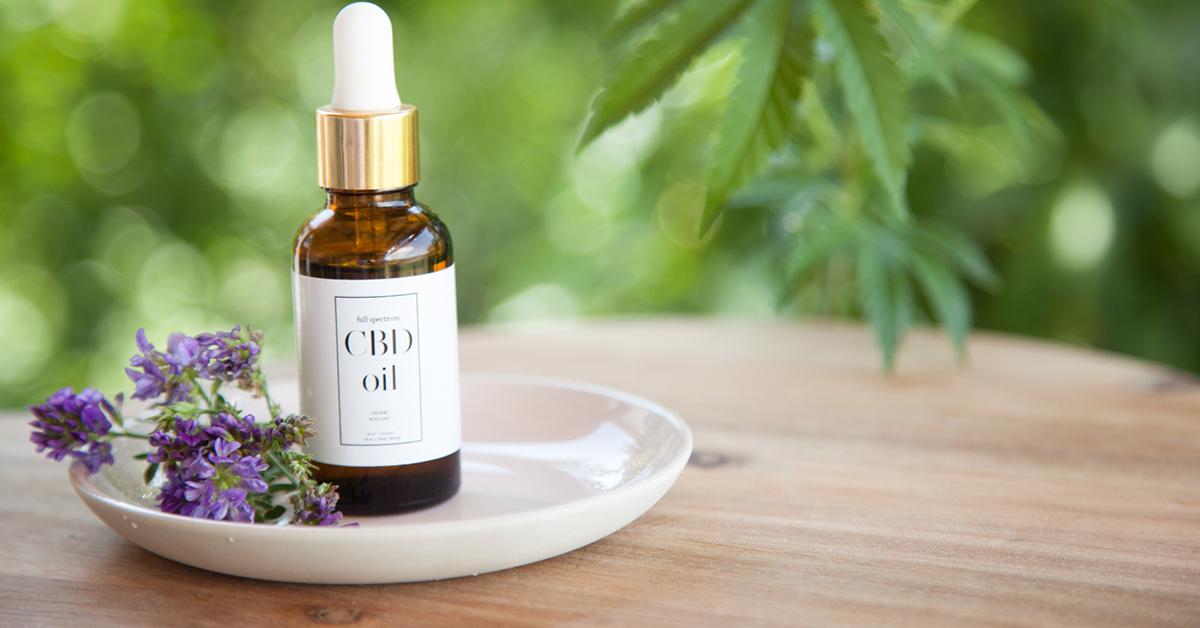Is CBD Oil Safe? Learn About the Possible Side Effects
CBD oil may seem like a miracle solution — but like anything else, there are some issues.
Updated Jan. 31 2020, 12:37 p.m. ET

The past two years have been the years of CBD oil. It cropped up everywhere — in health food stores, in local shops, in big-brand shops, and even at gas stations. People who had never heard the three letters put together before — C-B-D — suddenly saw the stuff everywhere: in vape pens, as oils and tinctures, in chocolates and mints, and even in CBD-infused lotions. The cannabidiol industry really took off in 2019, thanks to the passing of 2018 Farm Bill, which redefined hemp and derivatives of cannabis. Previously, hemp and derivatives of cannabis — even versions with extremely low concentrations of THC, the psychoactive compound found in cannabis — had been defined as marijuana and were prohibited under the Controlled Substances Act or CSA.
The 2018 Farm Bill removed those restrictions so that now, hemp and derivatives of cannabis — with no more than 0.3 percent THC in dry weight — are no longer classified as marijuana. This was massive for the hemp and CBD industry, but with everyone going cuckoo for CBD oil in a short amount of time, there really have not been that many long-term studies that look at the long-term effects of CBD oil and whether or not it is truly safe.
CBD oil is hailed for its benefits in treating the symptoms of various physical, emotional, and mental ailments such as anxiety, pain, movement disorders, and cognitive function. But what are the long-term (and even short-term) effects of taking the phytocannabinoid?
Keep reading to learn about CBD oil, its side effects, and whether or not CBD oil is safe!
What Is CBD or Cannabidiol?

Though it comes from the same plant, CBD and THC are very different.
CBD — also known as cannabidiol — is a phytocannabinoid that was discovered back in 1940. Derived from the cannabis plant, CBD is a lot like marijuana except that it does not create a high when taken. The chemical compound tetrahydrocannabinol, or THC, is the compound in marijuana that produces a psychoactive high and since CBD does not contain high levels of THC — despite making up nearly 40 percent of the plant’s extract — it is thought to provide all the relaxing benefits of cannabis, without the psychoactive high.
CBD is used for many different reasons and treatments, but according to Medical News Today, it is most often used to treat symptoms associated with chronic pain, epilepsy, Huntington’s disease, glaucoma, Parkinson’s disease, and various sleep disorders. Aside from reducing anxiety-related behaviors in people with anxiety disorders, CBD is also hailed for its ability to mitigate symptoms and pain associated with cancer.
Sounds ideal, right? Well, then why are some people saying that CBD oil is associated with developing cancer, not just treating it?
Are CBD Oil and Hemp the Same?
CBD is derived from hemp, but no, they are not exactly the same thing. Two separate entities, hemp features lower concentrations of THC and higher concentrations of cannabidiol — a.k.a. CBD. Hemp can also be made into a material and used for everything from clothing and rope to biofuel, insulation, and textiles. It can also be made into “bioplastic,” a plastic-like alternative that can be used for everything from phone cases to disposable cutlery.

Hemp seeds, seen here, are often used in the kitchen.
Hemp can also be eaten. Maybe you’ve heard of hemp seeds, which are often eaten raw or used in things like smoothies or acai bowls. Hemp seeds can also be made into an oil. In addition to hemp in the food industry, it’s also big in the beauty industry, with everything from face masks to shampoos and conditioners utilizing hemp as an ingredient.
CBD is derived from hemp and is a chemical compound called “cannabinoids,” found originally in the cannabis play. So, how do they differ? CBD is made by extracting the oil from the cannabis plant, then diluting it with a carrier oil such as coconut, hemp seed oil, avocado, or almond. In short, CBD oil is diluted with a carrier oil; hemp is not.
Are CBD Oils FDA-approved?
You’ll find many CBD oils on the market, but none of them are Food and Drug Administration (FDA) approved as of right now. As it stands, the FDA has only approved one CBD product, which is a prescription drug called Epidiolex, approved to treat two rare and severe forms of epilepsy.
While no CBD oils are officially FDA approved as of this writing, it is also illegal to market CBD in the United States as a “dietary supplement.” Because CBD is not currently categorized as a dietary supplement, it is not stringently regulated by the FDA.
Is CBD Oil Safe?
As with anything, the more information and more time we have to study something and learn about both the short-term and long-term side effects, the more accurate the information. However, since CBD is so new and not exactly regulated by the FDA, there is still so much to learn about its potential risks and side effects.
What has been heralded the last two years for managing symptoms of pain, anxiety, and cancer could potentially be doing more harm than good.
As more information about continued use of CBD oil becomes available, the FDA has updated its website to reflect the potential side effects and risks of taking CBD. According to their official website, “CBD has the potential to harm you, and harm can happen even before you become aware of it.” It then lists in bullet points that CBD can cause liver injury, affect the metabolism of other drugs, causing serious side effects, and that use of CBD with alcohol or other depressants increases risk of sedation and drowsiness, which can, in turn, lead to injury.
Not even the Food and Drug Administration knows if CBD oil is safe. In fact, the FDA is very transparent about that on their website, writing, “There are many important aspects about CBD that we just don’t know, such as: What happens if you take CBD daily for sustained periods of time? What is the effect of CBD on the developing brain (such as children who take CBD)? What are the effects of CBD on the developing fetus or breastfed newborn? How does CBD interact with herbs and botanicals? Does CBD cause male reproductive toxicity in humans, as has been reported in studies of animals?”
Is CBD oil safe? The truth is we won’t know until we have more and longer-term data on CBD oil that seeks to answer all of the above questions.
What Are the Side Effects of CBD Oil?

As with any substance, research should be done before taking CBD oil.
As previously mentioned, there is not enough scientific data on the short-term and long-term effects of CBD to have a well-rounded understanding of CBD oil’s side effects. However, according to the FDA’s official website, “CBD can cause side effects that you might notice. These side effects should improve when CBD is stopped or when the amount ingested is reduced.”
The FDA website lists these potential side effects as:
- Changes in alertness, most commonly somnolence (which is drowsiness or sleepiness)
- Gastrointestinal distress, most commonly diarrhea or decreased appetite
- Changes in mood, most commonly irritability and agitation
Of course, another very serious potential side effect of CBD oil is liver damage. A recent study from the University of Arkansas for Medical Science found that, “CBD may be damaging to our livers in the same way that alcohol and other drugs are.”
In the study, mice were given various doses of CBD — in the form of the FDA’s only approved CBD drug, Epidiolex. According to Lab Roots, “When examining the mice with various doses of CBD in their system, it appeared that mice that had consumed the higher doses of CBD showed signs of liver damage in as short as 24 hours.” Those mice either died or were described as “near death” within days.
In clinical trials of the drug Epidiolex, anywhere from 5 to 20 percent of patients developed elevated liver enzymes, which is an indicator of damage to the liver cells or inflammation. Elevated liver enzymes aren’t immediately life-threatening; as long as the levels even out, they do not constitute a severe health issue. However, if the liver is severely damaged and levels do not even out, it could result in liver failure.